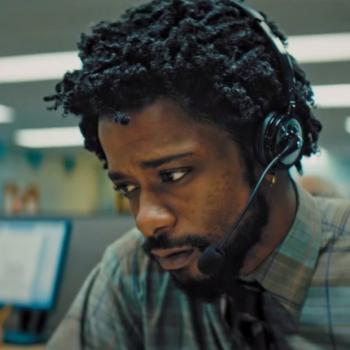“My mom is watching me,” my son’s six year-old friend Jared confided. Jared and my son had spent the entire playdate at the playground climbing and chasing without a single quarrel and I had just complimented Jared on his courteous behavior. “She has hidden cameras.”
We had only recently arrived in Hong Kong and Jared’s mother Naomi had been one of the first people to reach out to our family. The ingenuity and authority implied by this “hidden camera” technique was one more piece of evidence confirming my first impression that Naomi, mother of six beautiful, polite, and polyglot Japanese-Taiwanese-Hong-Kong-American-Mormon children, was the supermom of all supermoms.
At this time I dearly needed a parenting exemplar. The unfamiliar environment had severely tested my reserves of patience and meager collection of positive parenting tools. I wished that I could call my mother, who died of cancer in 2008. I wished that I could talk to her, not just for advice on sibling rivalry and destructive toddlers and the like, but also to let her know how much I appreciated her for doing the same hard work in raising my four brothers and me. I wished that now, after her long years of shepherding over our family, I could at least return to my mother my thanks and respect.
On the morning my mother died, I discovered that I really did believe in life after death. I felt sure that she had not simply ceased to be, but that she had gone somewhere beyond mortal sight, beyond the opaque caul separating life and death that Mormons call “the veil.” Could she at least witness the ways in which my becoming her made me understand and honor her? Did she have hidden cameras?
The thing about “hidden cameras” is that they create a gap between the camera’s scrutiny and the subject’s readiness to be scrutinized. This is a mixed bag. On the one hand, to suddenly discover that you are being watched can be mortifying. At the very least, in the case of little Jared, it makes you self-consciously cautious. On the other hand, it is very hard to give an earnest performance if you are certain that there is no one in the audience.
When you believe, as Mormons do, that human beings are not just temporary bundles of matter and consciousness that flare into personhood for a period of time and then dissipate, but immortal beings with eternal intelligences, and moreover that all of the progenitors on whom your genetic makeup depends potentially have a keen interest in you (maybe not all the time, but enough to pay attention every once in a while, or to keep an eye on the action the way that one watches the hometown team play football), this turns out to be a lot of people watching.
It’s not just my mother. Do my grandparents, great-grandparents, or Chinese and Japanese ancestors tune in for special occasions, like weddings, funerals, and reunions? Do they see me when I lose my temper and yell at my kids? Do they have opinions about my major life decisions?
Mormonism embraces wholeheartedly this notion of the watchful dead. In temples, Mormons participate in proxy ordinances so that their ancestors will have the option of either accepting or rejecting the same religious rites experienced by the living. These rites include the ordinance of “sealing,” which Mormons believe ensures that meaningful family relationships will persist beyond the grave. Stories abound in Mormon folklore about people who had visions of their ancestors in the temple or in times of urgent need.
Of course, people from other religious backgrounds, such as the Chinese popular religious tradition, believe that intergenerational ties endure beyond mortality and that ancestors can provide aid to their living descendants. How is the Mormon perspective distinctive when it comes to our relationship with the unseen watchers?
One answer is that the sheer grandness of Joseph Smith’s soteriological vision implies a colossal equality and sense of absolute kinship between all who live and who have ever lived. The theological innovations of Joseph Smith were not aimed at accomplishing salvation on an individual scale, but in entire communities, lineages, and other collective bodies. Joseph Smith’s polytheism—by which I mean his teaching that all humans are immortal intelligences who possess the divine potential to someday become as God is—posits a universal eternal personhood that collapses the gaps between earthly generations. Everyone has the same mortal experience, but in turn.
In this sense, the role of an “ancestor” watching “descendants” in their daily struggles and triumphs may be less like that of a senior citizen returning to his or her high school alma mater to watch the homecoming game and more like that of a runner in a relay race passing the baton to a teammate and continuing to shout from the infield.
This notion of hidden cameras—that is, the potential mindfulness of beings beyond the veil—need not paralyze us with the burden of perpetual performance under scrutiny. On the contrary, awareness of our constant vulnerability to God and other witnesses can give us freedom. It is what gives strength to Jesus’s injunction, “Judge not, that ye be not judged.”
Hence, living life in the presence of many others—both living and dead—who have the time and the opportunity to witness our weaknesses and shortcomings makes us terribly vulnerable. And yet this is a burden that we all share in our homes, extended families, and larger human communities. To know, and to be known, invites a reciprocity that is not just a burden, but also its own sort of blessing.











